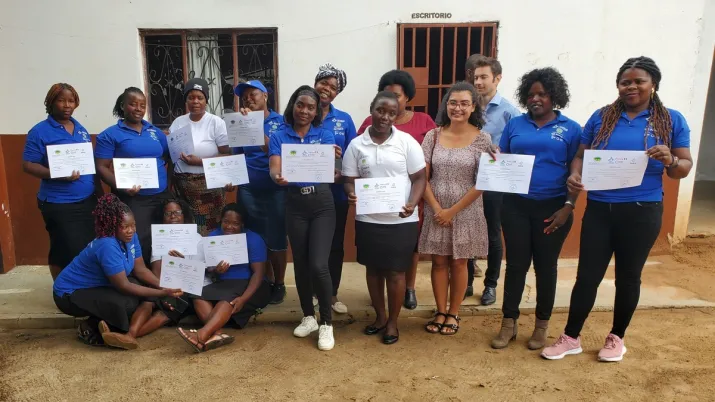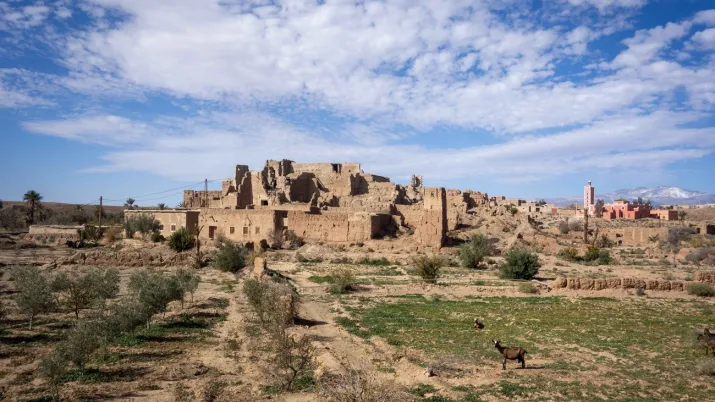Share the page
How evaluations inform the debate on solidarity-driven investments
Published on

Evaluations are not only essential for determining the effectiveness of AFD Group’s actions, but also for identifying lessons that can inform future projects. The Group’s 2025 evaluation report explores these questions, with a focus on three key themes: the planet, health, and social cohesion.
“Evaluation performs an essential function, not only for assessing projects after their completion, but also for helping us improve throughout the project lifecycle, learning from our successes as well as our challenges,” says Philippe Le Houérou, Chairman of AFD’s Board of Directors. Recent evaluations have shown that AFD’s strategy of combining technical cooperation, financial assistance and public policy dialogue helps support reform undertaken by governments of partner countries.
This approach has been effective in the Caucasus region, for example, where France and Georgia have been working together on issues such as pensions, health, and social protection. As part of this collaboration, AFD supported the establishment of Georgia's pension department. In the four years since its creation in 2018, this department has collected $1.2 billion in social security contributions from Georgian workers. An evaluation of this collaborative project has shown that Expertise France's technical assistance was well-received for offering guidance without overstepping in the Georgian authorities' decision-making. It also facilitated the transposition of European directives into national legislation, thus helping to align Georgia more closely with European Union standards.
The positive impact of AFD’s support was also highlighted in an evaluation of its work with the Territorial Collectivity of Martinique (CTM). “Beyond financing, our collaboration is based on a relationship of trust and strategic partnership,” says Marc Mongis, Acting Director General of Services for the CTM, “and the evaluation of our joint action has marked a new chapter: it has helped us structure our dialogue and cooperative strategy, and align it with Martinique’s development priorities.”
See also: How does AFD measure the impact of the projects it supports?
Mutual benefits of peer-to-peer exchange
A number of evaluations have also demonstrated the value of involving experts, including French expertise. For example, in Mauritania, AFD Group worked with the National Higher School of Health Sciences (ENSSS), in Nouakchott, in partnership with the University Hospital of Angers and Amiens, as part of the Temeyouz project. The school’s training curriculum was revised, and the experts working on the project helped build the capacity of midwives in Mauritania.
The essential role of local stakeholders
Other evaluations have highlighted the importance of working in partnership with organizations on the ground, who are familiar with the specific local context and are well-placed to provide an effective response. This strategy was applied for the Health in Common initiative, one of AFD Group’s major responses to the Covid-19 pandemic in Africa. An evaluation of this project concluded that mobilizing the support of long-standing partners or those already on the ground was essential. In Madagascar, AFD had the opportunity to work with Action Against Hunger once again, after an initial joint project in 2017 to combat the plague outbreak.
Certain evaluations have emphasized the need to support organizations operating in the field to help them work more effectively. The evaluation conducted midway through the Sahel Gender Fund revealed that civil society organizations committed to gender equality face many challenges, despite their resourcefulness. The fund provides support with building the organizational, administrative, and financial capabilities of CSOs, and work is still ongoing to help them successfully implement the twelve pilot initiatives selected.
Working towards more effective action as a Group
“Evaluations–whether ex-ante, end-of-project, or capitalization evaluations–are an essential part of the continuous improvement process for implemented projects, as well as the development of our strategies and approaches,” says Sophie Schapman, Head of the Monitoring, Evaluation, Accountability, and Learning Division at Expertise France.
“For several years now, Proparco has placed greater emphasis on project monitoring so that results can be backed up by hard data,” says Arnaud Uzabiaga, Head of Proparco’s Impacts Division, “but this data also needs to be properly interpreted and given meaning: this is why evaluations are so valuable, because they involve qualitative assessment.” It is also essential that the findings from these evaluations are used to inform future projects.
“The challenge is also to explain how AFD Group is fulfilling its mandate through its diverse actions, how international cooperation helps support the most vulnerable groups and protect global public goods such as the climate and biodiversity, and, finally, how all this has value for France,” says Jean-Claude Pires, Director of AFD’s Evaluation and Learning Department. In total, AFD, Expertise France, and Proparco assessed 261 projects in 2023 and 2024, as well as performing 108 capitalization evaluations, 12 impact evaluations, and 11 wide-ranging evaluations.
See also: How AFD brings your projects to life
Expertise-sharing has also been successful in sustainable forest management in Türkiye. Financing has been granted to support initiatives with major co-benefits for the climate, at a time of budgetary constraints in Türkiye, while discussions with French experts from the National Forestry Office – International (ONFI) has given Turkish experts food for thought, for example, on incorporating biodiversity into a roadmap for forest management.
This collaboration is mutually beneficial: with France likely to experience conditions in the future similar to Türkiye's current climate, French oak seeds have been planted in several locations with different climates across the country to test their resilience. Based on these findings, the most productive varieties will be planted in France to help mitigate the growing impact of climate change.
Download the 2025 biennial evaluation report here and a summary here.
View all the information on our evaluation policy here.



